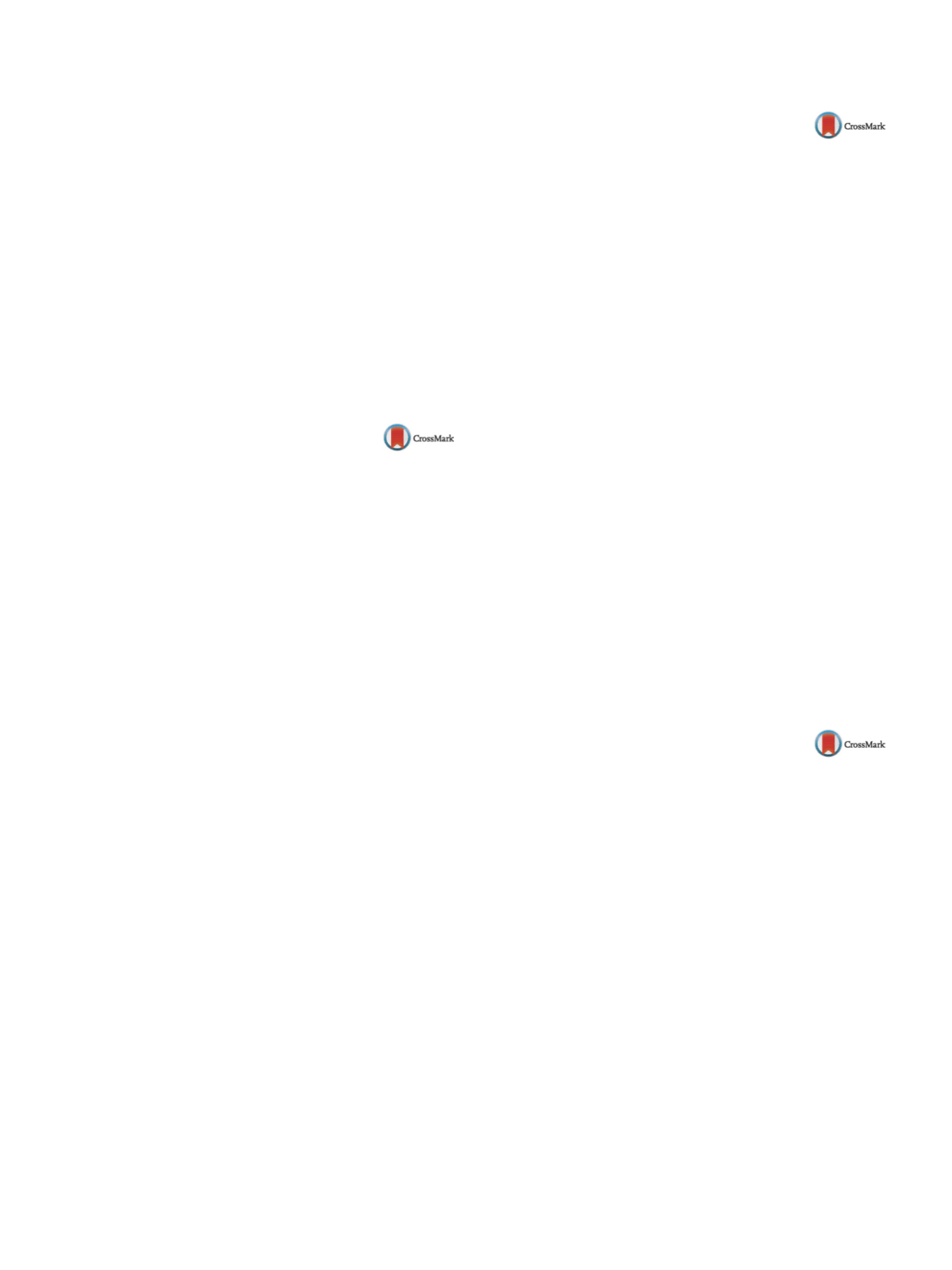

S118
25th European Congress of Psychiatry / European Psychiatry 41S (2017) S106–S169
(2) The Student-T test was used to compare, between the groups,
themean of scores in YMRS and CGI-S scales and themean of length
of stay.
Results
Baseline characteristicswere similar between the groups.
The majority of patients were also treated with mood stabilizers
(46% with lithium and 45% with valproate).
The mean decrease in CGI-S scores from baseline to the day of dis-
charge was significantly (
P
< 0.003) higher in the risperidone group
(
−
2.81 vs.
−
2.36). The length of stay was significantly (
P
< 0.004)
lower in the olanzapine group (mean of 23.03 days vs. mean of
30.3).
Conclusions
(1) The CGI-S scores in manic patients treated with
risperidone decreased more than in patients treated with olanzap-
ine during admission. (2) The length of stay was significantly lower
in patients treated with olanzapine.
Disclosure of interest
The authors have not supplied their decla-
ration of competing interest.
http://dx.doi.org/10.1016/j.eurpsy.2017.01.1905EW0037
Switching bipolar disorder patients
treated with clozapine to another
antipsychotic medication: A mirror
image study
P. Ifteni
∗
, A. Teodorescu
Universitatea Transilvania din Brasov, Facultatea de Medicina,
Brasov, Romania
∗
Corresponding author.
Introduction
Bipolar disorder (BD) is associated with periodic
symptoms’ exacerbations, leading to functional impairment, sub-
stance abuse, and increased risk of suicide and accidents. Clozapine
has never been approved for the treatment of BD but it is used in
severe episodes.
Aims
The aim of the study is to evaluate the risks and benefits of
switching remitted BD patients treated with clozapine to another
antipsychotic medication.
Objectives
We assessed the proportion of relapsed patients after
switching clozapine, time until relapse, type of relapse and the
number of admissions.
Methods
This was an observational, mirror image study of 62
remitted BD outpatients treatedwith clozapine. Following a change
in drug reimbursement rules by which clozapine was no longer
reimbursable for patients with BD, 25 patients were switched to
another antipsychotic and the rest of 37 continued on clozapine
agreeing to pay treatment.
Results
The mean score of CGI-BP at admission in study was in
on both groups almost similar (2.3 vs. 2.4). After switching, a sig-
nificant proportion of patients relapsed (77%), in 100% cases with a
manic episode requiring hospitalisation. The mean YMRS score at
relapse was significantly higher compared with the evaluation at
the time prior to switching (31.78 (SD = 9.72) vs. 11.99 (SD = 7.29),
P
< 0.01).
Conclusions
Despite the limitations of this naturalistic study, the
results suggest that switching from clozapine to another antipsy-
chotic may increase the risk of relapses in remitted patients with
BD. The risks, costs and consequences of symptoms exacerba-
tion should be weighed against the quest to control pharmacy
costs.
Disclosure of interest
The authors have not supplied their decla-
ration of competing interest.
http://dx.doi.org/10.1016/j.eurpsy.2017.01.1906EW0038
Treating cognitive impairments in
bipolar disorders: New leads in the
cognitive remediation field
C. Isaac
1 ,∗
, M.C. Castillo
2, D. Januel
11
EPS Ville Evrard, Unité de Recherche Clinique, Neuilly-Sur-Marne,
France
2
Université Paris 8, Laboratoire de Psychopathologie et de
Neuropsychologie, Saint-Denis, France
∗
Corresponding author.
Cognitive deficits have been overlooked in bipolar spectrum disor-
ders, despite their significant impact on patients’ quality of life.
Indeed, nearly sixty percent of stabilized bipolar patients suffer
from major cognitive impairments that impede their everyday
life functioning. Without proper care, these impairments remain
throughout lifespan and increase with hospitalisations, social iso-
lation or pharmacological treatments. Cognitive remediation is a
cost-effective tool well accepted by patients and caregivers that has
proven its efficacy for treating cognitive impairments in several dis-
orders such as schizophrenia. However, for bipolar disorders, this
psychosocial intervention based on brainplasticity is still in its early
stages. After depicting the state of the art on cognitive impairments
and cognitive remediation inmood disorders, wewill introduce the
ECo program that was specifically designed for bipolar disorders.
We will then present the preliminary results (
n
= 18) of a double-
blind randomised controlled study that assessed the effect of this
program on cognitive impairments and psychosocial functioning,
at short term and long term (three and nine months). First results
support the hypothesis of a positive impact of the ECo cognitive
remediation programon bipolar patients’ neuropsychological func-
tioning, self-efficacy and quality of life. Cognitive remediation may
be a promising tool for bipolar disorders that meets the needs of
patients, their caregivers and the community.
Disclosure of interest
The authors have not supplied their decla-
ration of competing interest.
http://dx.doi.org/10.1016/j.eurpsy.2017.01.1907EW0039
Bipolar disorder and cannabis
G. Jmii
∗
, M. Zghal , F. Ghali , M. Mezghenni , L. Jouini ,
L. Robbana , F. Ellouze , F. Mrad
Razi Hospital, Department of Psychiatry G-, Tunis, Tunisia
∗
Corresponding author.
Introduction
People with bipolar disorder frequently struggle
with substance abuse and dependence. Typically, cannabis is the
most commonly abused drug in individuals with bipolar disor-
der. Some investigators have implied that cannabis may actually
be mood stabilizing in patients with bipolar disorder. However,
the relationships between cannabis use and bipolar disorders are
complex and remain incompletely described.
Objective
The aim of this study was to identify the characteristics
of addiction to cannabis in bipolar patients type I and determine the
consequences of cannabis on the expression of bipolar illness and
prognosis.
Methods
This is a comparative cross-sectional study which
included patients followed in the psychiatry department of the G
Razi hospital for bipolar disorder type I and for substance depend-
ence according to DSM IV diagnostic criteria. Hetero-questionnaire
on sociodemographic variables, clinical and treatment.
Results
The average age was 41 years. The average hospital stay
was 9.18 days. 33.33% of patients were monitored regularly. Most
patients were single and worked as a day labourer. Cannabis was
the most consumed substance. Cannabis use was prior to the
expression of psychiatric illness in 55% of cases. The average num-
ber of hospitalisation in patients with a cannabis addiction was
significantly greater than that observed in the non-addicted group.


















